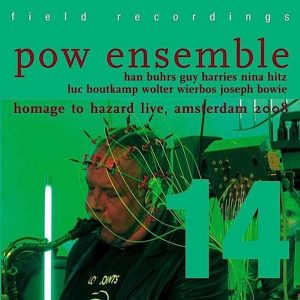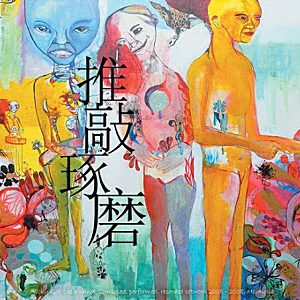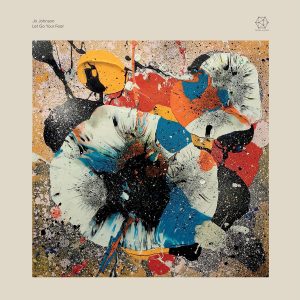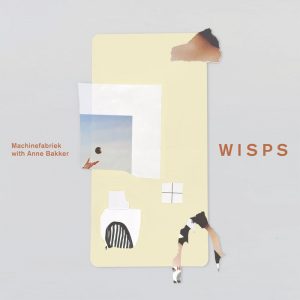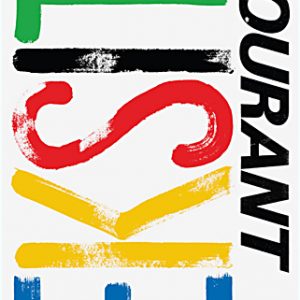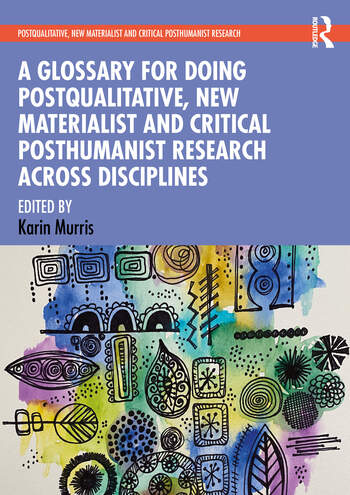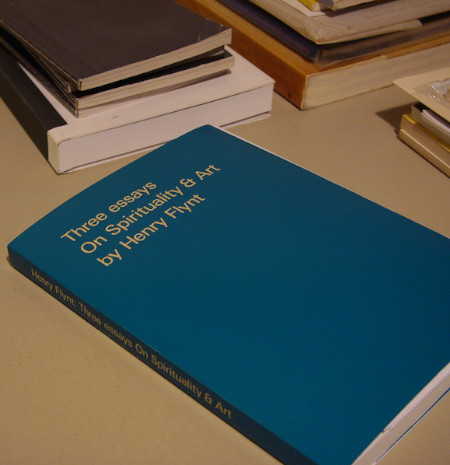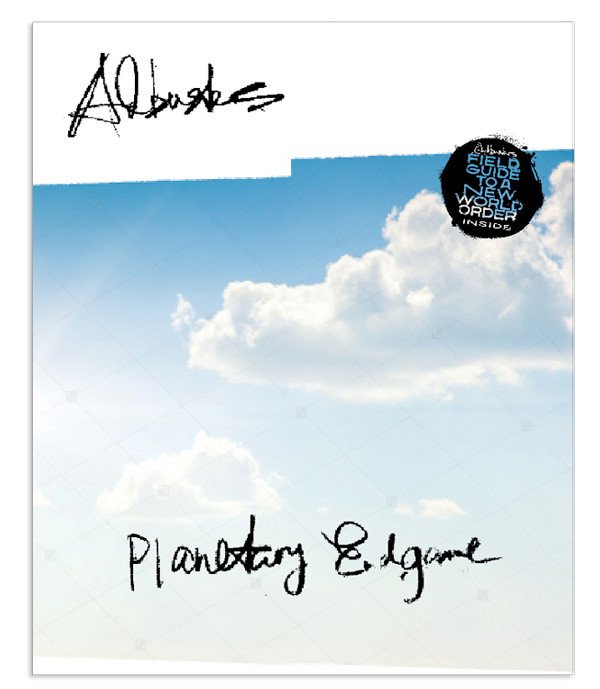Karin Murris (Editor) - A Glossary for doing Postqualitative, New Materialist and Critical Posthumanist Research across Disciplines
A Glossary for Doing Postqualitative, New Materialist and Critical Posthumanist Research Across Disciplines gives novices and experienced researchers clear and comprehensible introductions to theories, paradigm shifts and key concepts in postqualitative, feminist new materialist and critical posthumanist research.
The ten authors, who have a wealth of experience of teaching and conducting postqualitative research, have explored 72 key concepts and binaries. Supported by links to the series website (https://postqualitativeresearch.com/), this user-friendly glossary contains short entries of the main concepts, binaries and verbs in this field of research. The series website gives practical provocations that characterize the postqualitative terrain. Disrupting the theory/practice divide, the Glossary provides a postqualitative reimagining of traditional research processes while guiding readers through the contestation of binaries and innovative concepts.
The Glossary is an accessible and introductory guide for novice qualitative researchers, and is of use to established academics already working with postqualitative approaches. It is an indispensable companion to the primary texts and original sources by theorists discussed in this and other books in the series.
See also: In Conversation with Karen Barad by the same publisher.
Table of Contents
List of Figures and Tables
Acknowledgements
List of Contributors
Writing Together-Apart: Introduction to the Glossary
Karin Murris, Carol A. Taylor, Candace R. Kuby, Simone Fullagar, Karen Malone, Weili Zhao, Vivienne Bozalek, Asilia Franklin-Phipps, Fikile Nxumalo
Part 1: The Core Binaries that Shape Research
- Able/Disabled – Vivienne Bozalek and Simone Fullagar
- Adult/Child – Karin Murris and Candace R Kuby
- Culture/Nature – Weili Zhao, Min Lin and Karin Murris
- Emotion/Affect – Carol A. Taylor and Simone Fullagar
- Human/Animal – Vivienne Bozalek and Simone Fullagar
- Mind/Body – Simone Fullagar and Weili Zhao
- Self/Other – Candace R Kuby and Karin Murris
- Subject/Object – Karin Murris and Weili Zhao
- Teacher/Student – Candace R Kuby and Weili Zhao
- West/East – Weili Zhao and Karin Murris
- Reason/Emotion – Carol A. Taylor and Simone Fullagar
Part 2: The Concepts that Shape the Postqualitative Terrain
- Affectivity – Simone Fullagar and Vivienne Bozalek
- Agency – Karin Murris and Weili Zhao
- Agential Cut – Vivienne Bozalek and Simone Fullagar
- Assemblage – Simone Fullagar and Carol A. Taylor
- Atmosphere – Carol A. Taylor and Simone Fullagar
- Be(com)ing – Candace R Kuby and Weili Zhao
- Body – Simone Fullagar and Carol A. Taylor
- Causality – Karin Murris and Vivienne Bozalek
- Choreographies – Carol A. Taylor and Simone Fullagar
- Concept – Candace R Kuby and Karin Murris
- Dao and Qi – Weili Zhao and Karin Murris
- Data – Vivienne Bozalek and Candace R Kuby
- Deterritorializing – Simone Fullagar and Karen Malone
- Difference – Vivienne Bozalek and Weili Zhao
- Diffraction – Vivienne Bozalek and Karin Murris
- Dis/identification – Karin Murris and Vivienne Bozalek
- Enquiring (Inquiring) – Candace R Kuby and Vivienne Bozalek
- Entanglement – Karin Murris and Simone Fullagar
- Ethico-onto-epistemology – Candace R Kuby and Weili Zhao
- Event – Vivienne Bozalek and Carol A. Taylor
- Human Exceptionalism – Karen Malone and Karin Murris
- Intra-action – Karin Murris and Vivienne Bozalek
- Knots – Simone Fullagar and Carol A. Taylor
- Knowledge – Candace R Kuby and Karin Murris
- Language and Discourse – Candace R Kuby and Weili Zhao
- Learning – Asilia Franklin-Phipps and Weili Zhao
- Making – Candace R Kuby and Carol A. Taylor
- Material-discursive – Vivienne Bozalek and Candace R Kuby
- Matter – Karen Malone and Karin Murris
- Memory – Asilia Franklin-Phipps and Karin Murris
- Method – Carol A. Taylor and Vivienne Bozalek
- Multispecies Kin – Karen Malone and Carol A. Taylor
- Non/representational – Karin Murris and Weili Zhao
- Noticing – Vivienne Bozalek and Simone Fullagar
- Post-anthropocentrism – Karen Malone and Vivienne Bozalek
- Posthumanism – Karen Malone and Candace R Kuby
- Power – Simone Fullagar and Carol A. Taylor
- Presencing — Fikile Nxumalo and Vivienne Bozalek
- Queering – Simone Fullagar and Vivienne Bozalek
- Question – Karin Murris and Candace R Kuby
- Relationality – Fikile Nxumalo and Karin Murris
- Research – Candace R Kuby and Vivienne Bozalek
- Re-turning – Karin Murris and Weili Zhao
- Rhizome – Simone Fullagar and Candace R Kuby
- Sensorial – Karen Malone and Simone Fullagar
- Sleep and Sleeping – Carol A. Taylor and Asilia Franklin-Phipps
- Slowness – Simone Fullagar and Vivienne Bozalek
- Spaceplace – Karen Malone and Fikile Nxumalo
- Spacetimemattering – Candace R Kuby and Carol A. Taylor
- Storying – Weili Zhao and Karin Murris
- Swimming – Simone Fullagar and Vivienne Bozalek
- Things and thing-power – Candace R Kuby and Carol A. Taylor
- Thinking – Karin Murris, and Vivienne Bozalek
- Timetemporalities – Karin Murris and Carol A. Taylor
- Touch – Simone Fullagar and Karin Murris
- Unlearning – Weili Zhao and Karin Murris
- Voice – Simone Fullagar and Karin Murris
- Walking-with – Karen Malone and Vivienne Bozalek
- Worlding – Karen Malone and Karin Murris
- Writing – Vivienne Bozalek and Simone Fullagar
- Yin-Yang – Weili Zhao and Karin Murris
References
Index
About the editor
Karin Murris is Professor of Early Childhood Education at the University of Oulu (Finland) and Emerita Professor of Pedagogy and Philosophy, University of Cape Town (South Africa). She is a teacher educator, grounded in academic philosophy and a postqualitative research paradigm. Her main interests are in posthuman child studies, philosophy in education, ethics and democratic pedagogies.
Paperback, published in 2021, 200 Pages.
€42.00

